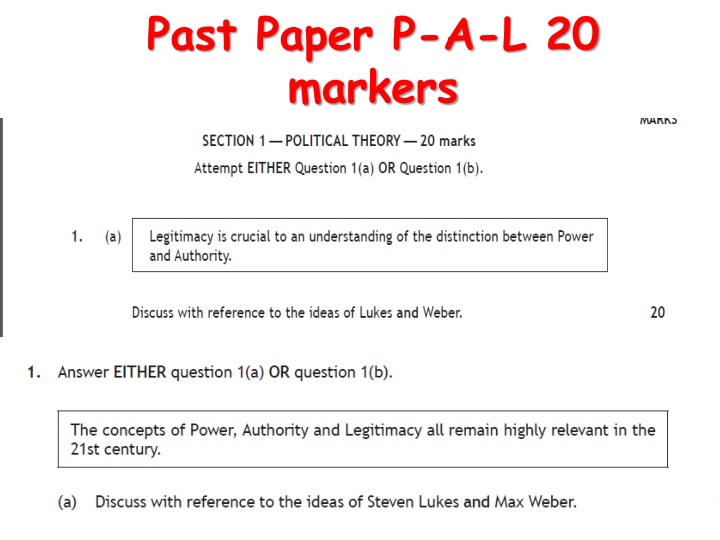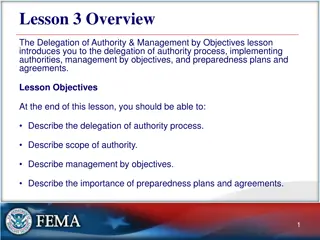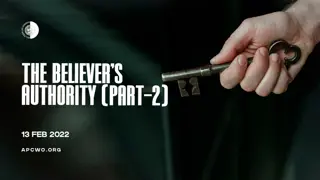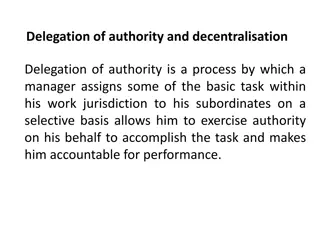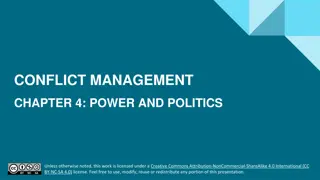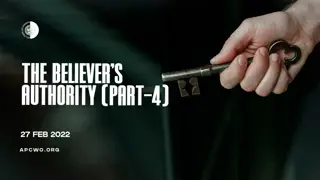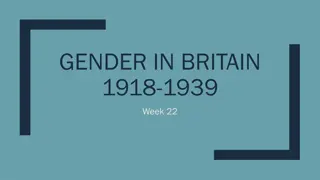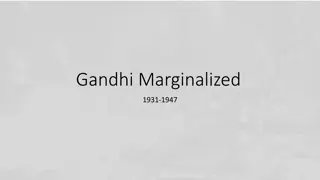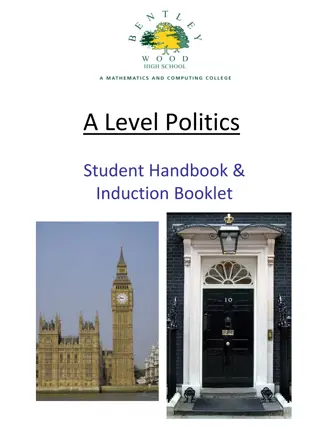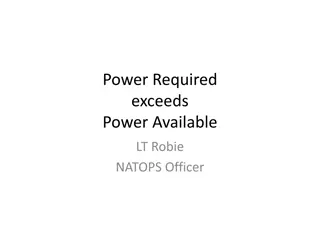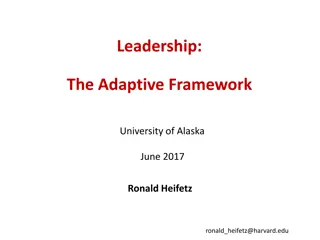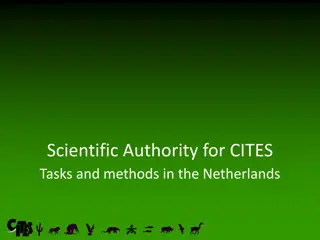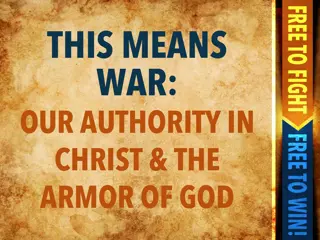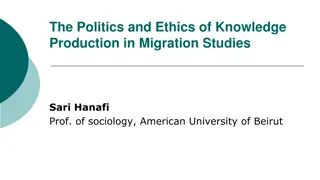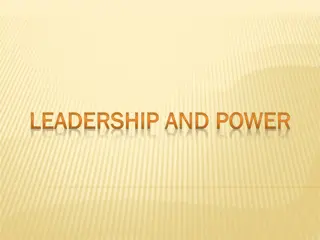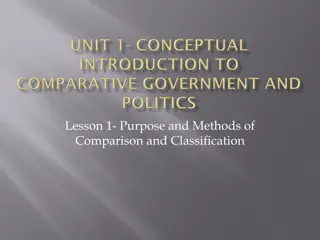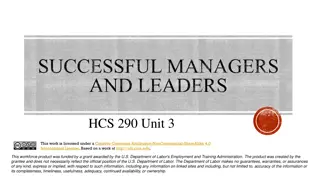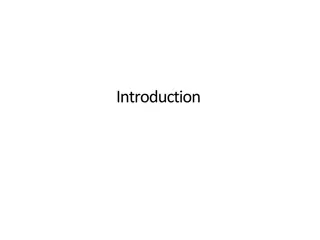Distinguishing Power and Authority in Politics
This essay explores the differentiation between power and authority in politics, focusing on the concept of legitimacy and analyzing the perspectives of sociologists Max Weber and Steven Lukes. It discusses various definitions of power, Lukes' three faces of power, Weber's three types of authority, and the relationship between power, authority, and legitimacy. By examining these key concepts, the essay showcases how legitimacy plays a crucial role in defining rightful power.
Download Presentation

Please find below an Image/Link to download the presentation.
The content on the website is provided AS IS for your information and personal use only. It may not be sold, licensed, or shared on other websites without obtaining consent from the author.If you encounter any issues during the download, it is possible that the publisher has removed the file from their server.
You are allowed to download the files provided on this website for personal or commercial use, subject to the condition that they are used lawfully. All files are the property of their respective owners.
The content on the website is provided AS IS for your information and personal use only. It may not be sold, licensed, or shared on other websites without obtaining consent from the author.
E N D
Presentation Transcript
Past Paper P-A-L 20 markers
20 mark breakdown Knowledge up to 8 marks Analysis up to 6 marks Structure up to 2 marks Conclusion up to 4 marks Where a candidate makes more analytical/evaluative points than are required to gain the maximum allocation of marks, these can be credited as knowledge and understanding marks
What can I discuss? Various definitions of power Lukes three faces of power (decision- making, non-decision-making and shaping desires) definitions of authority Weber s three types of authority (traditional, charismatic, legal-rational) definitions of the concept of legitimacy identification of the links between power, authority and legitimacy
Intro candidates should be credited highly for answers which define the central issue in their introduction, and provide a clear structure so that their essay develops a line of argument. So Central issue structure - argument
Power and authority are often used interchangeably; however they are known to describe different aspects of how we are led. This essay will detail how in politics the distinction between Power and Authority comes down to the concept of legitimacy. This essay analyses the work of Sociologists Max Weber and Steven Lukes who have particular theories on power within a state. It can be argued that there are key differences between power and authority and this essay will show that it is legitimacy that creates a sense of rightful power.
Paragraph 1 Definitions of Power TS: It has been suggested that all politics is about power, who has it, what they do with it and how they get it. K Pick up knowledge marks here for discussion of different types of power Power Politics, Absolute power. Describe what they are in detail. K(ex) Pick up additional K marks for providing detailed examples to go with your descriptions i.e. Hitler & Absolute Power A Pick up analysis marks for analysing these types of power It can be argued that this type of power is largely negative/ positive for citizens because
Mini Conclusions at end of paragraphs Good practice & can gain conclusion marks Therefore, it can be argued that (basically summarise the main content & arguments of that paragraph) i.e. Therefore it can be argued that Lukes defined the three faces of power as Decision making, Non decision making and Shaping Desires and he argued that the first face was an open and visible face of power whereas the other two were more secretive and less visible to citizens, making them less transparent and democratic types of power.
Paragraph 2 Lukes on Power TS: Theorist Steven Lukes proposed that there were three Faces of Power. K Pick up knowledge marks here for describing the three different types or Faces of Power in detail K(ex) Pick up additional K marks for providing detailed examples to go with your descriptions i.e. Tony Blair WMD & Thought Control A Pick up analysis marks for analysing these types of power It can be argued that this type of power is largely negative/ positive for citizens because
Paragraph 3 Authority TS: It can be argued that authority is rightful power where the group or person in power is seen as legitimate due to this. K Pick up knowledge marks here for describing what authority is how can you get it? What happens if you don t have it? K(ex) Pick up additional K marks for providing detailed examples of people groups who have/ lack authority i.e. Gordon Brown as PM, Theresa May, N Ireland A Pick up analysis marks for analysing the importance of authority/ effects of losing it It can be argued that if a government lacks legitimacy
Paragraph 4 Weber on Authority TS: Theorist Max Weber believed that it did not matter how one got authority as long as they had it. He believed there were three types of authority. K Pick up knowledge marks here for describing the Three types of authority traditional, charismatic, legal-rational K(ex) Pick up additional K marks for providing detailed examples of people groups who have each type i.e. The British Monarchy, Hitler, Blair A Pick up analysis marks for analysing each type of authority It can be argued that this type of authority is beneficial/ harmful for citizens because
Paragraph 5 Legitimacy TS: Legitimacy, or the sense of Rightful power, is essential to maintain authority. K Pick up knowledge marks here for describing the definition of legitimacy and the ways of getting it i.e. elections, winning civil wars K(ex) Pick up additional K marks for providing detailed examples of people groups who have had or lacked legitimacy i.e. Blair s New Labour in 1997, Northern Ireland s government A Pick up analysis marks for analysing the effects of no legitimacy It can be argued that if a government lacks legitimacy this can lead to AND/OR Analyse the legitimacy of the British electoral system FPTP
Conclusion 4 marks It should; directly address and evaluates the key issue in the question, providing example (s) provide a high level of sophistication as it develops a line of thought with supporting justifications
SQA Example 4 marks In conclusion, it is clear that legitimacy provides the link between power and authority. For someone to have authority they must also possess legitimacy. For example, when Gordon Brown became PM he had all the formal powers of the prime minister but he did not have the same authority as other prime ministers as he had not been voted in by the people. He lacked the legitimacy, or the rightfulness to rule, as he did not have the consent of the people gained by being the winner of an election. As a result, critics claimed that he lacked authority people did not accept that he had the right to rule without the consent of the voters and he was frequently challenged to call an election to gain the legitimacy he lacked. If power is the ability to get other people to do what you want them to do, authority can be seen as having the right to do this. The key to the difference between this is what creates the sense of rightfulness i.e. legitimacy. In political systems where the rulers lack legitimacy (e.g. by holding elections), they are not seen as having the right to rule and have to rely on coercion to maintain their power. This could be exercised through threats or sanctions such as military force, or through manipulation such as control of the media. This provides a very detailed conclusion which directly addresses and evaluates the key issue in the question and provides a high level of sophistication as it develops a line of thought with supporting justifications (4 marks).
